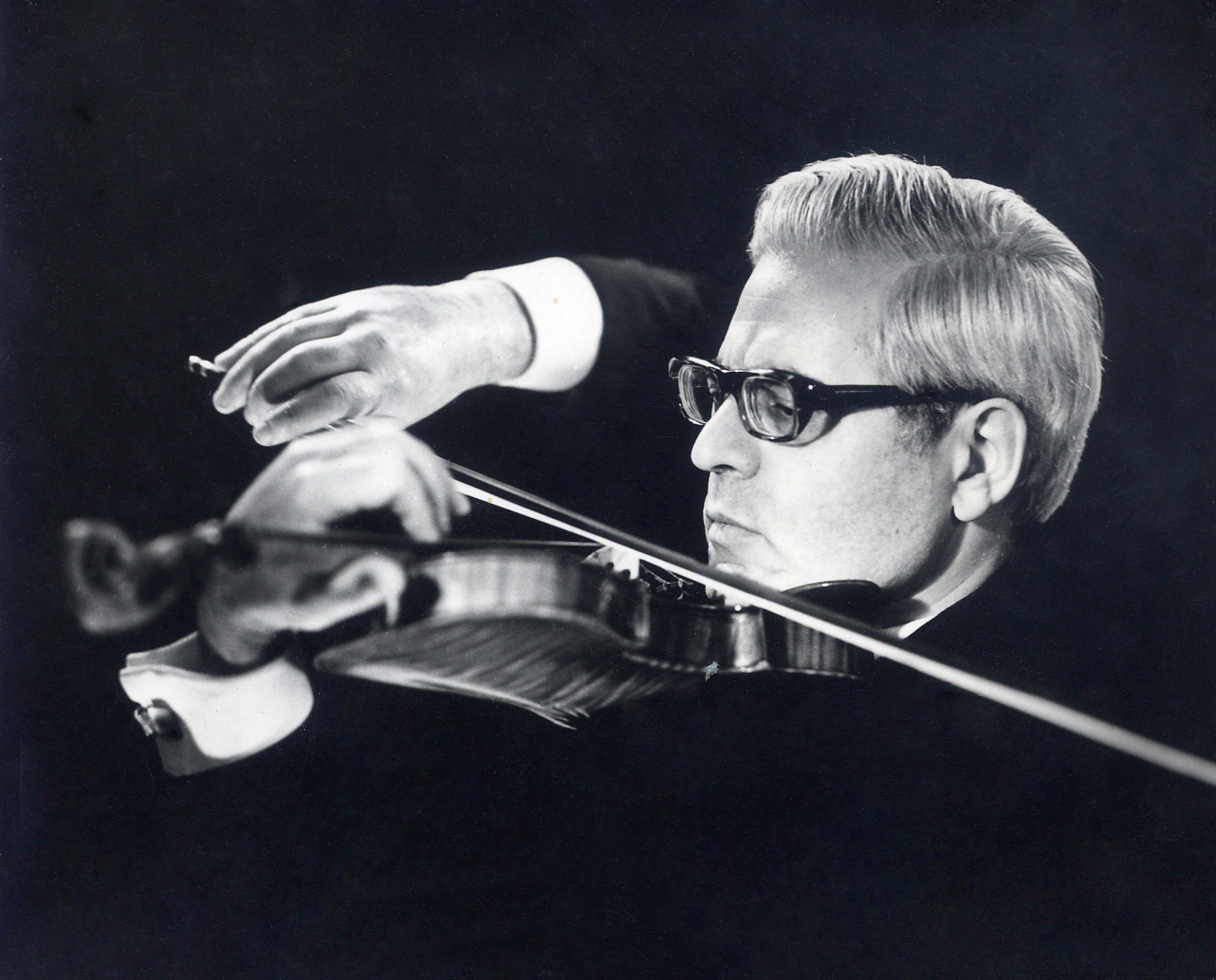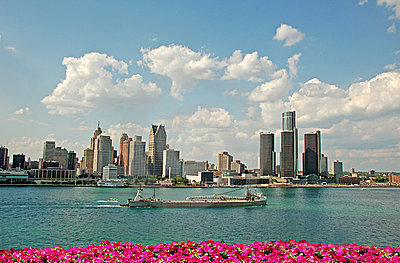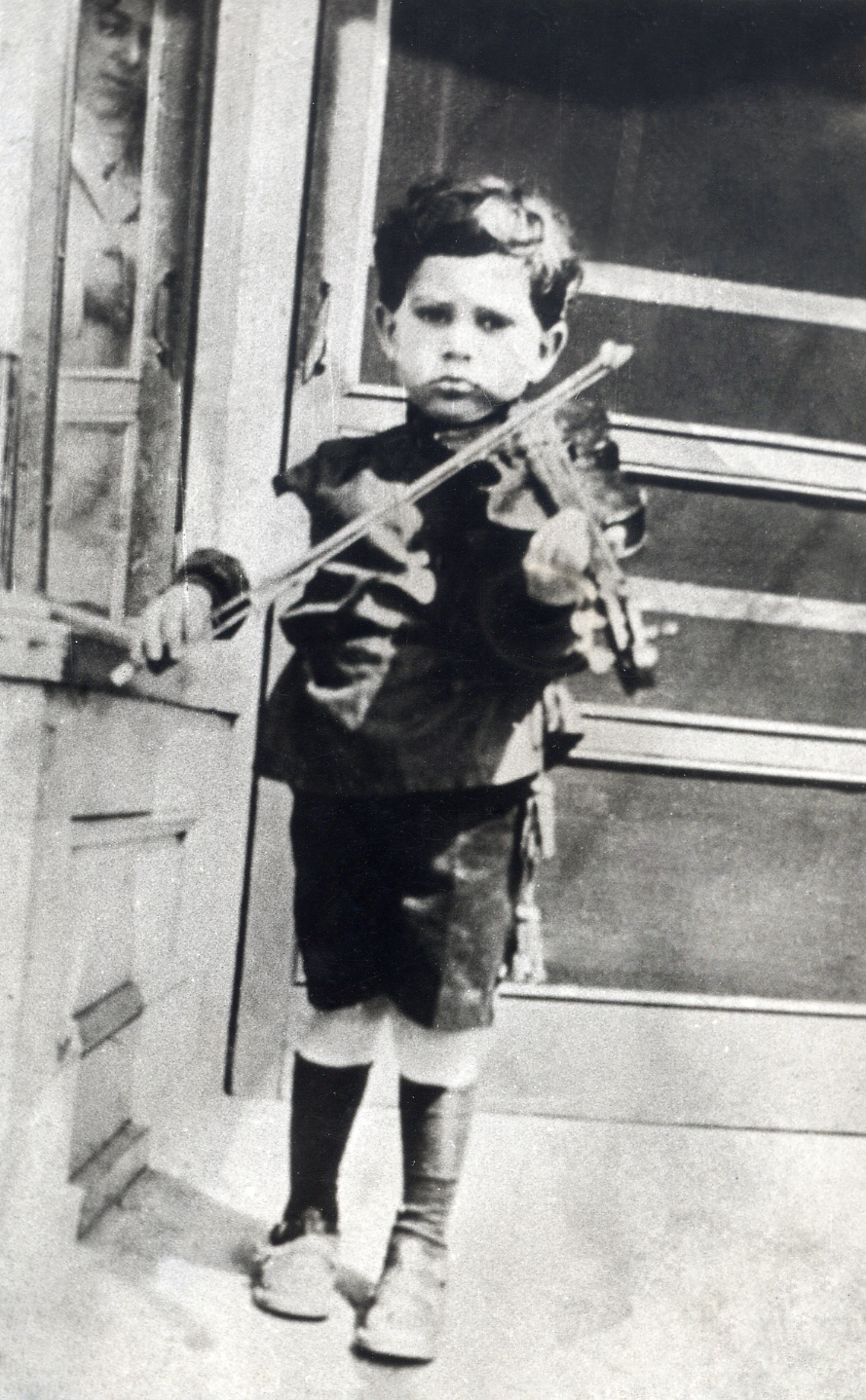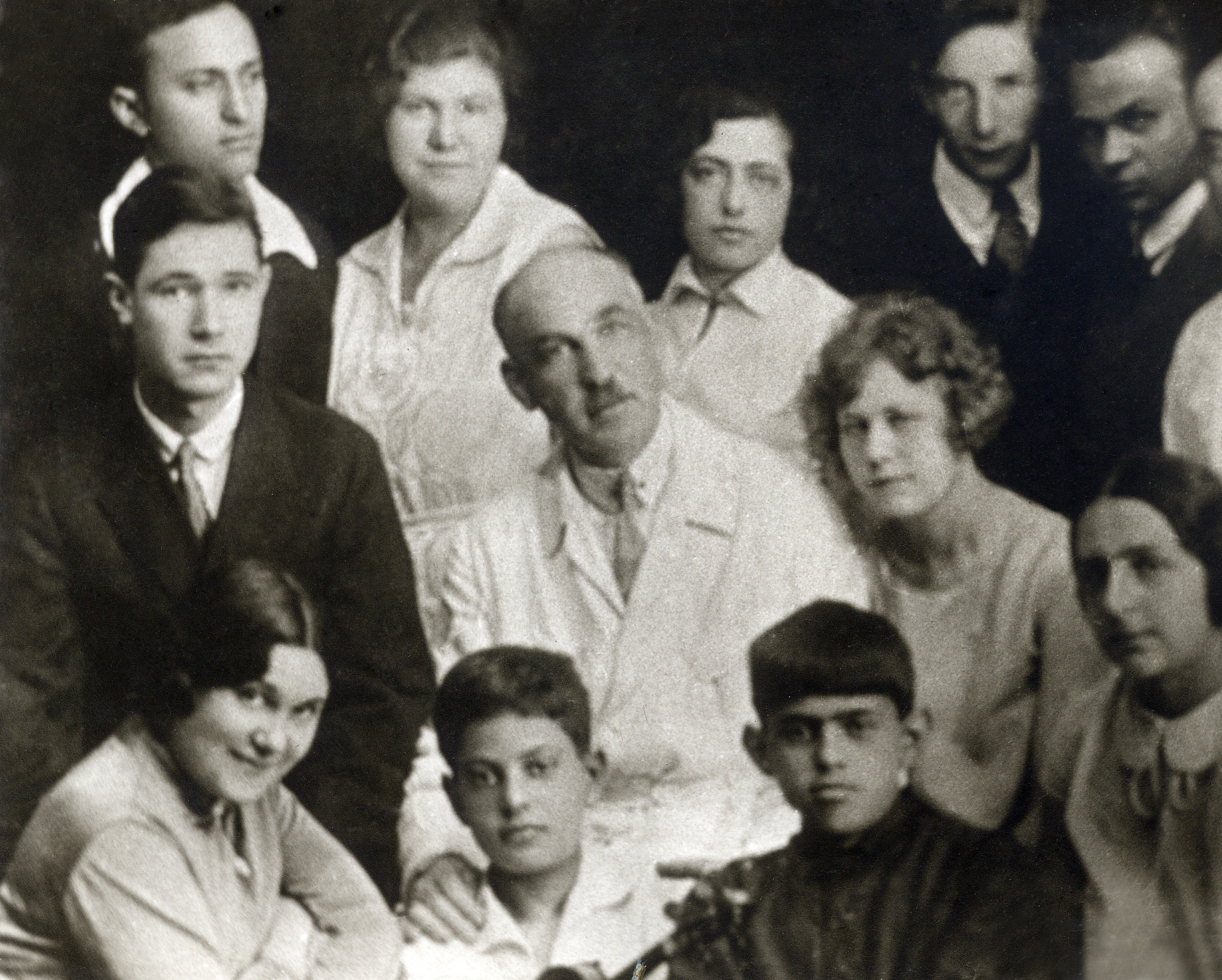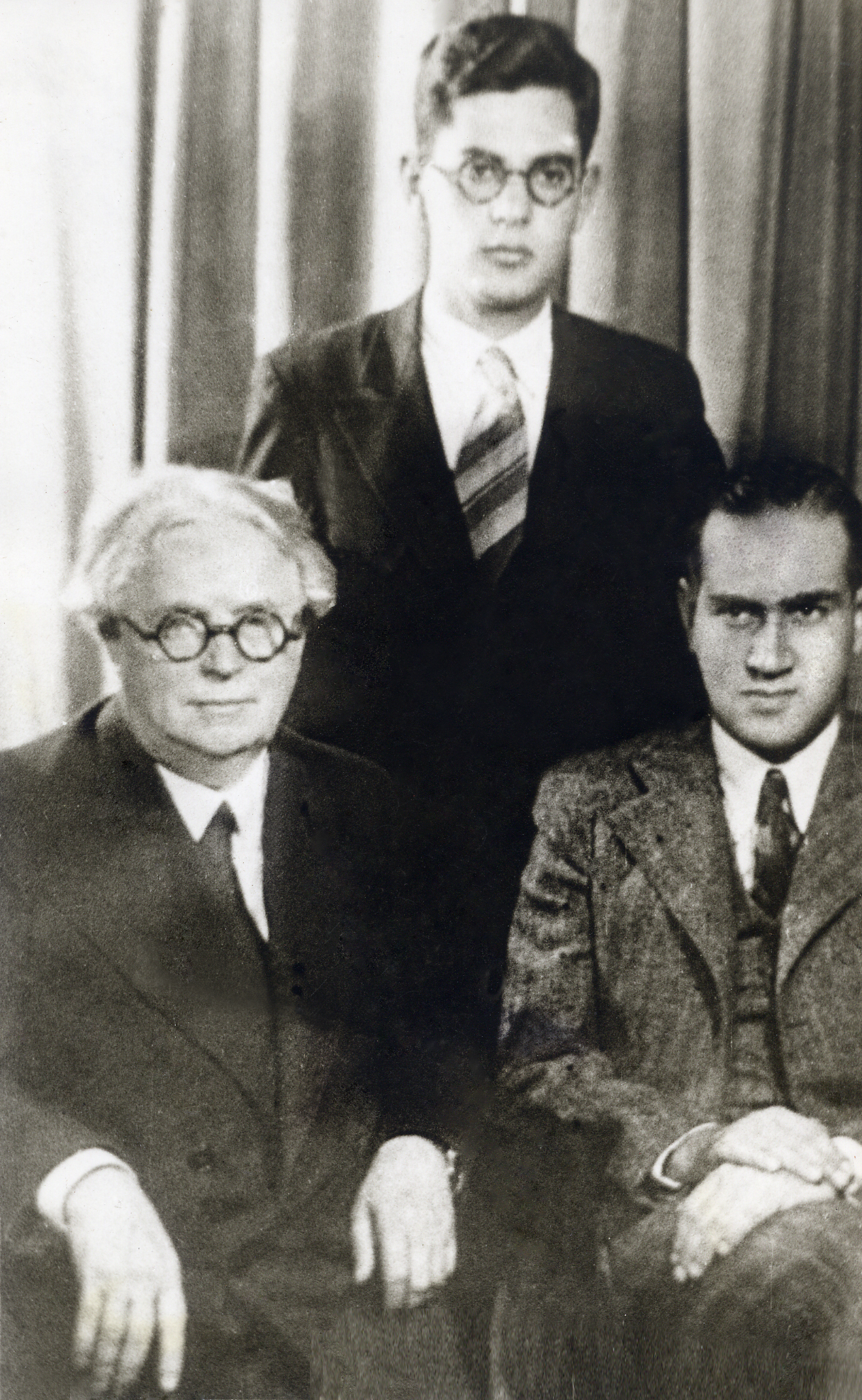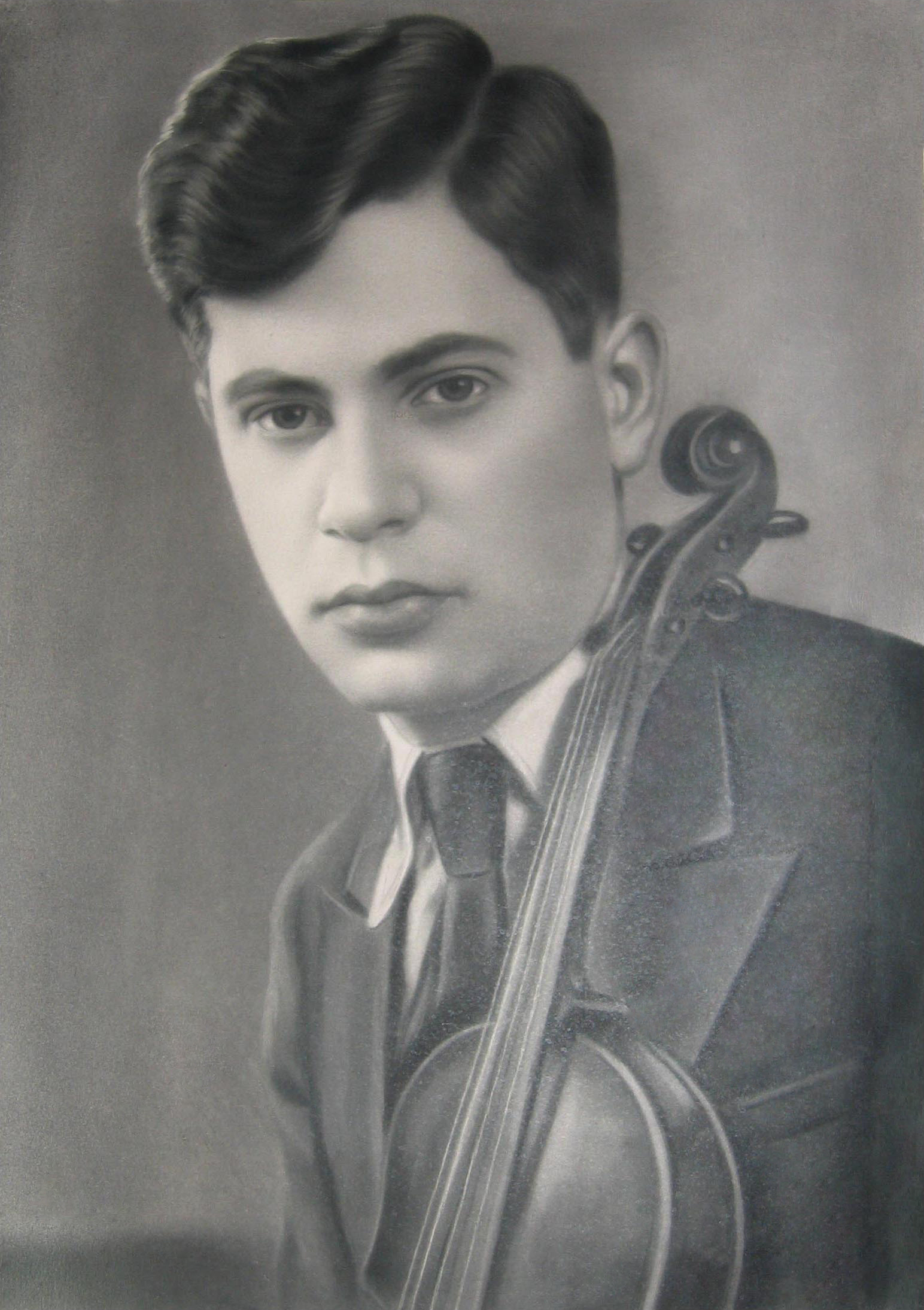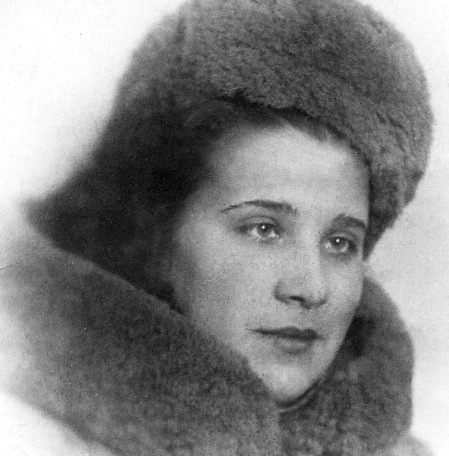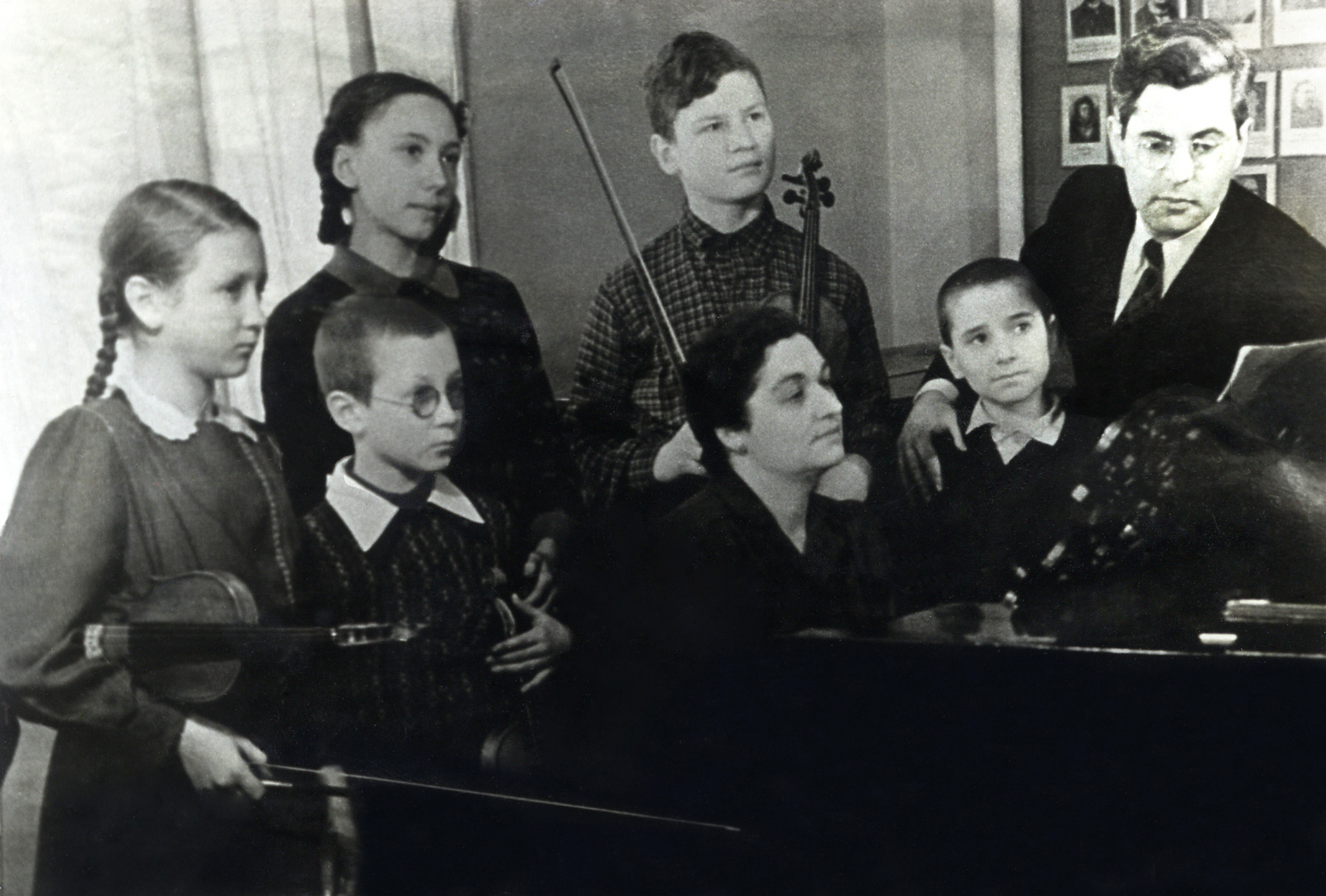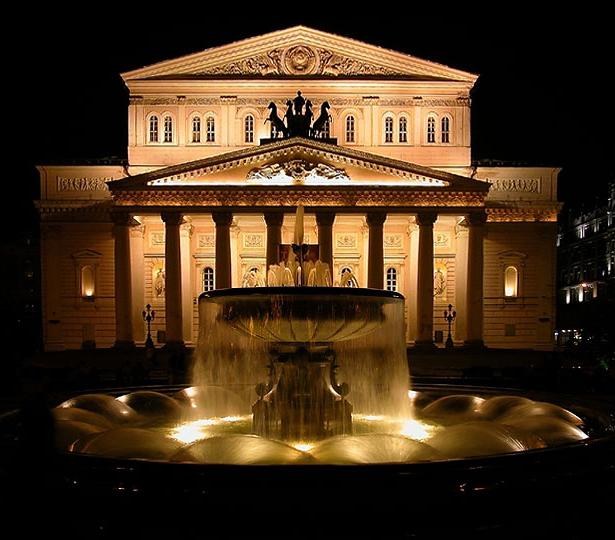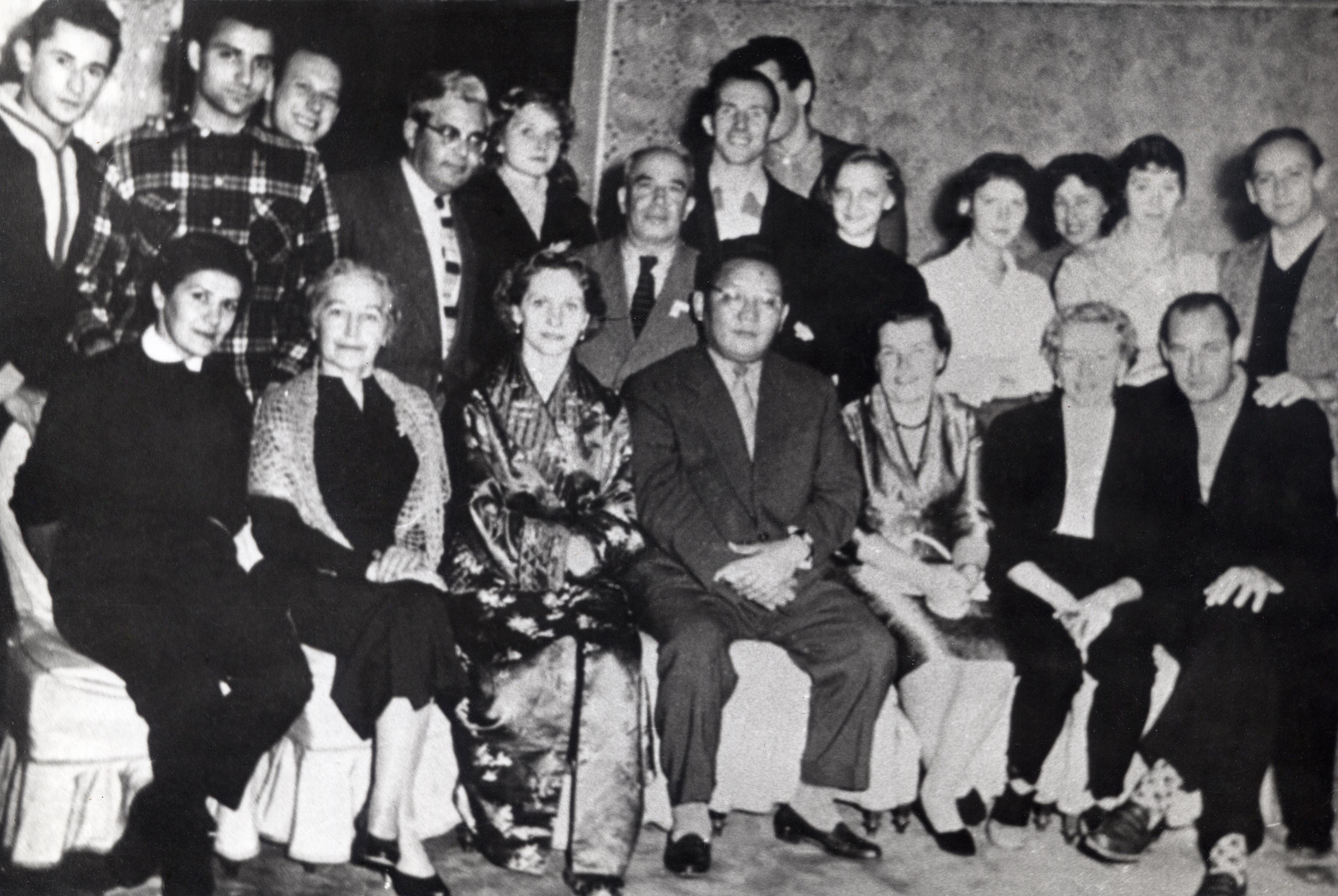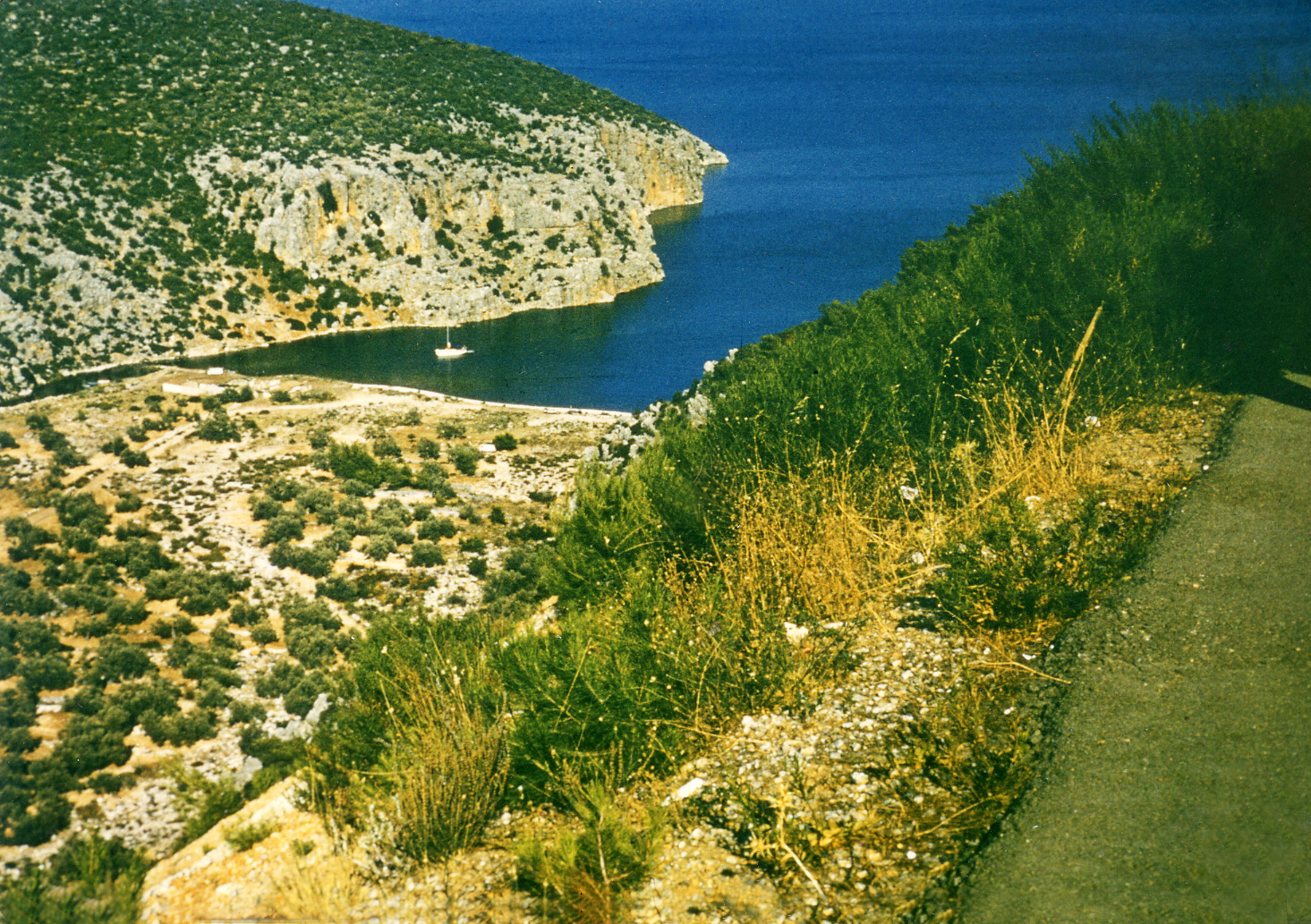'According to Marcel Proust, on the facet of our pupils we all 'wear' a silhouette of a certain ideal, which forms our vision and criteria. And if one tries to imagine the musical equivalent of such an image, constantly ringing in our ears, many would point at the art of Leon Sachs.' ('The Soviet Artist' Newspaper, 16.12.77.)
The Incredible Fate of Bolshoy's Principal Violin
Leon Sachs - a brilliant musician: a virtuoso violinist and the Bolshoy Theater Orchestra's principal violin - was considered a man of unusual fate even in his lifetime. However, even though the theater's posters were adorned by Leon's name for more than thirty years, only few knew why is his fate so unusual.
This changed when the supernaturally gifted soloist of the acclaimed collective met his astonishingly fatal end in Greece during the Athens Festival of Arts in August of 1977. That tragic incident instantly revealed the details and secrets of the birth, life and death of this unique persona and, without a doubt, placed his fate in the number of incredible fates of 20th century.
The One Born in the City of Roses
Leon Sachs was born in the very south of the Canadian stern North - in the city of Windsor. His emergence into the world in this romantic place, known as the city of roses and famous for its numerous parks and gardens, is enveloped in a veil of mystery.
The parents of the future child prodigy have left Russia with the first wave of emigration in the end of 19th century and came to USA in the pursuit of happiness. They have settled in Detroit - Michigan's capital. This is where Leon - the firstborn child of the Sachs family - was ought to be born. Yet God's will was to change the course of events. Boris and Olga - like most of Detroit's young population - have come to like boat rides on Detroit's picturesque river. They've also crossed to the river's other shore, which already belonged to the Canadian city Windsor with its scenic green landscapes, woodland parks, rose gardens, singing birds and fresh, salubrious air.
Such a boat trip was undertaken by the young couple on a weekend in April of 1918. Yet, arriving at the Canadian shore, Olga, being in her late pregnancy period, suddenly felt unwell and turned to a doctor. On April 20th, 1918, her firstborn son Leon has came into the world.
Daddy Ben, Henry Ford and Vladimir Lenin
The birth of a son overfilled the young family with happiness, but also brought some unforeseen worries. Leon's striking musical talent became evident when he was very young. And the parents, even though constantly in need, did everything possible to make sure their son receives private violin lessons. For a while the Saсhs family managed to organize a small laundry business in Detroit, but, alas, it did not last long.
Boris (in USA he was Ben) worked for the newly opened (and later world famous) Ford Motor Company. He was of those who assembled the legendary T Model automobiles at the dawn of 20th century. Yet even the hard labor of a worker did not bring a sufficient income to pay for little Leon's violin tutor.
Working at the Ford Factory Boris joined the USA communist party. In 1925 he willingly responded to Vladimir Lenin's call to American workers - an appeal to come to Russia and help building the young Soviet Union. And the entire family, inspired by the new dream and the hope of a better life, has forever moved to USSR's capital.
A. Lunacharsky's Gift
Moscow gave Leon the opportunity to study for free. Moreover, following A. Lunacharsky's (the first Soviet People's Commissar of Enlightenment responsible for culture and education) instruction, Leon was given a special stipend from a fund for gifted children. At first he entered the musical college carrying the name of A. And N. Rubinstein brothers. Lev Zeitlin, a wonderful musician (a student and successor of the founder of the Russian violin school Leopold Auer) became Leon Sachs' first teacher. Later the young violinist was transferred to a special group for precocious children at the Moscow Conservatory. Such acclaimed future musicians as the violinist Leonid Kogan, the pianist Rosa Tamarkina and the cello player Theodor Luzanov were amongst Leon's classmates.
'Moscow Daily News', May 23,1935
Leva Sachs, Young Violinist, Shows Talent. By A. Constant Smith
Leva Sachs, a young violinist who recently graduated from a special children's music group, gave his first recital on May16th at the Moscow Conservatory. This children's group is a class organized by the conservatory for children who show special precocity in their musical development. It would be unfair to keep them in the same class as those developing at a slower pace, although, on the other hand, it would not be wise to put them in the same class as older pupils. Henсe the special group. After graduating from this class the children continue their studies in the higher classes of the conservatory.
The first concert showed Sachs as a serious and sufficiently accomplished musician, technically. Professor Zeitlin, his teacher, whose excellent method is grounded upon Leopold Auer's splendid tradition, gave the young pupil an excellent foundation for his future creative work. A natural taste, rhythmic sense, fine finger work are Sach's best qualities. We await an individual quality of tone, which will surely come with time; his bow technique also needs further improvement in the direction of more elasticity and freedom.
Sachs found a deservedly warm reception from the audience.
It is worthwile mentioning the fact that the violinist is the son of American parents who came to the Soviet Union 10 years ago. His native talent was developed under careful tutorship in the Soviet musical schools.
Teachers for Life - Lev Zeitlin and David Oistrakh
In 1937, already a student at the Moscow Conservatory (professor Lev Zeitlin was the head of the violin department), studying with the distinguished violin professor David Oistrakh, Leon Sachs participated in the first national USSR competition of violinists and became its laureate. By this time he has already been a successfully performing musician, giving concerts in different cities of the Soviet Union.
'The attractive manner of playing, the understanding of style and the capacity to reveal the author's intent - all of these allow us to include Leon Sachs in the number of our best young violinists,' - wrote Konstantin Mostras, a big authority in pedagogy of violin performance, an author of his own method - after the competition.
USA 'DAILY WORKER', October 29, 1937
Vies for Honors
In Moscow and other big cities of the Soviet Union competitions are taking place between the young Soviet musicians in preparation for participation in the All-Union Competition.
The Symphony Orchestra of CHRA
Upon graduation from the conservatory Leon Sachs was drafted to the Red Army and for some time served in the symphony orchestra of the Central House of the Red Army. Working in this collective allowed him to widen his horizons and be directly introduced to the artistry of such outstanding conductors as Lev Shteinberg, Oscar Frid, Kurt Zanderling and many others, as well as gaining the invaluable experience of playing in the orchestra. When - after demobilization - he was offered to participate in the competition to the orchestra of the Operetta Theater, Leon Sachs easily secured the job of the principal violin.
A Muse for Life
In the first years of war Leon met the major and only love of his life. It seems impossible to come out with a more incredible story than this one: the fateful encounter occurred at a student party; a young dark-haired woman with green eyes and a porcelain face struck the young musician (at this point already well known in the musical circles) - a live muse! It seems incredible, the young woman's name happened to be Muza - the Russian word for 'muse'.
Muza Denisova, a student of the Gnessin college, soon became Leon Sachs' wife, presented him with a son - Victor and a daughter - Maria. They were tied for life by their devoted love to each other and to music. Their love lasted for thirty-five years and was admired by everyone who knew this musical family.
At the Origins of the Borodin Quartet
Following his demobilization, Leon Sachs entered the Moscow Conservatory graduate school and continued polishing his art of violin playing under the guidance of professor David Oistrakh. The student of the legendary maestro Petr Stoliarsky - who brought up an entire pleiad of acclaimed musicians - David Oistrakh was a true successor of his mentor.
Stoliarsky gave a lot of importance to the versatile development of young musicians. He also considered the playing in symphony and opera orchestras (alongside solo performances) - to be a necessary condition for the formation of a solo violinist. Leon Sachs took those 'Stoliarsky' lessons in with all his heart and for the rest of his life.
In the graduate school, in addition to performing extensively, Leon also started teaching. Apropos, the famous Borodin Quartet originally played in the following membership: Leon Sachs (violin), Grigory Kemlin (violin), Rudolf Barshai (alt) and Valentin Berlinsky (cello).
Leon Sachs: 'By Teaching We Learn'
Since 1943 - alongside his numerous concert performances - Leon Sachs was constantly teaching. He taught at the Gnessin Ten Year School and the Gnessin Seven Year School, at the Moscow Conservatory college, at the Gnessin Institute. The Names of many of his students - in different time periods - adorned the posters announcing the orchestras of the Bolshoi Theater, the Stanislavsky and Nemirovich-Danchenko Theater, the orchestra of the National USSR Radio and many others.
'He has a special passion and approach for pedagogical work. Being an excellent instrumentalist himself, working with students, he knows how to create this necessary contact and the informal way of communication, without a shade of condescension (which is most often the lot of people who know too little) - that helps even the weakest student to feel at ease and reveal his potential to the maximum. Following the famous postulate: 'by teaching, we learn', Leon Sachs believes that pedagogical work is useful to any performing musician, as guarantees mutual benefit. ('The Soviet Artist', November, 1970).
The Bolshoi Theater
Since 1945 Leon Sachs was an artist of the USSR's Bolshoi Theater's Orchestra. The Bolshoi Theater captured Leon's entire being with its grandeur, festivity and remarkable artistic discipline. 'Тhe theater became a new and outermost music school for me,' - Leon Borisovich used to say. 'It seemed to me that the work in this collective is a great honor for the representative of any profession. The communication with the leading figures of the conducting art - N. Golovanov, A. Melik-Pashaev, V. Nebolsin, M. Zhukov - taught me to regard musical theater as the top achievement of performance, allowed me to be a witness to the greatest models of classical and Soviet repertoire performance.' ('The Soviet Artist', November, 1970).
In 1950 - in relation with the celebrations of the Bolshoi Theater's 175th birthday - Leon Borisovich Sachs was awarded with an Order of Fame.
The Bolshoi's Principal Violin
In 1964 the competition for the principal violin of the Bolshoi Theater's Symphony Orchestra was announced. Leon Sachs passed it brilliantly and became the principal violin of one of the world's largest orchestras.
'Leon Sachs as a principal violin should be mentioned separately, - Fuat Mansurov, who worked as the orchestra's conductor in those years, used to say. - I personally treat principal violins with a special kind of piety. In my opinion, those are people of exceptional will power, extraordinary character and steel nerves. Each of us, performers, knows that playing in the orchestra and performing solo with the orchestra - are two separate professions, this is why I treat soloists that play with orchestras with the greatest esteem; I don't even look his way (he is more anxious than the entire orchestra as it is), since I'm so nervous for him.
We've all heard Leon Sachs' solo more than once, but every time one is struck by the unbelievable stability of his playing, the warm, soothing sound, the flawless 'sniper' intonation and the high culture of his musical language. Let's thank him for that!' ('The Soviet Artist', November, 1970).
Solo on a Stradivarius
'The sound of his violin is forever imprinted in everyone's memory. Everything in Leon Sachs' playing, as well as in his personality, radiated a light of true nobility. Every stroke, every gesture was imbibed with the spirit of lofty and temperamental artistry, with the intensity of the artistic burning of the soul.' ('Soviet Music', №5, 1978).
'Some could say: but he is playing a Stradivarius! Yes, an authentic Stradivarius, moreover, a famous one - that collection instrument once belonged to the marshal Mihail Tukhachevsky. Yet this is precisely the act of a real trust and the appraisal of Leon Sachs' performance art.' ('The Soviet Artist', November, 1970).
Implementing Stoliarsky's Lessons
For his younger colleagues in the orchestra 'Leon Sachs was a model in many respects. A man of refined spiritual culture, flawless taste, he never locked himself within the boundaries of orchestra work. He was interested in everything: history, literature, poetry, visual arts, concert life and the art of composition.
His musical horizons were incredibly wide: Leon Sachs knew and loved very diverse music - from ancient sonatas to the newest pieces of 20th century composers: Stravinsky, Messiaen, Hindemith, Shostakovich, Weinberg... The years did not dull, but only intensified his amazing artistic energy, his receptivity to all that is knew and interesting...
In the last months of his life he learned and played Messiaen's very complicated violin party in 'End of Time Quartet', couple of weeks before his death, together with Bolshoi 's Trio, he undertook a big tour across the cities of Italy...' ('Soviet Music', №5, 1978).
A Skillful Pen
Leon Borisovich remained a striking, unconventional individual in everything, he combined an artistically-lifted romantic pathos and sternest intellectual self-discipline. His judgements were notable for that genuine originality and independence which results from the inherent quality of the mind, which thinks fearlessly and blindly of the conventional. ('Soviet Music, №5, 1978).
Victor Denisov's archive contains yellow editions of the 'Soviet Artist' Newspaper, in which his father kept the post of the editor-in-chief's substitute for many years. It must be mentioned that Sachs was a skillful writer himself. His journalistic notes on the Bolshoi Theater's everyday life - invisible to a stranger - are incredible.
They revive minutes of true art that have already long become history. And one cannot help being amazed with the absolute trust of others towards this person, with his childish sincerity, openness and fearlessness in the evaluations of his colleagues! And at the same time how benevolent he is towards everyone of whom he writes!
'Leon Sachs was not only a wonderful artist, but belonged to the best representatives of the contemporary intelligent and active intelligentsia.' ('The Soviet Artist', December 16th, 1977).
The Ballet 'A Tale of the Stone Flower'
A Preliminary Run-Through
The work on Prokofiev's new ballet goes on. The first run-through of the show was carried out on December 30th. The orchestra's collective successfully performed a tough score.
With every rehearsal the artists and the conductor 'play in' into the music more and more, polish the details.
On the stage not everything is done by far. The impression is that several important elements are not yet ultimately determined by the director L. Lavrovsky.
One of the main characters - Katerina. The performer of this role Galina Sergeevna Ulanova seems to be still searching for a character conception and does not dance with full force. That - in its turn - does not allow the conductor Jury Fajer to establish exact rhythms.
Certain mass scenes are raw.
There are a lot of purely technical difficulties in the performance (set changes, lights, props). Yet one can say with certitude that the show has turned out colorful, spectacular, interesting.
Further rehearsals will show what else needs to be done in order to produce a good show.' (Leon Sachs, 'The Soviet Artist', January 6th,1954).
Concerts in Athens
Every evening the hall of the Orpheus Cinema Theater, which accommodates about two thousand people, is overcrowded. Despite the high price of the ticket, only the luckiest have obtained them, since here the desire to watch the famed Bolshoi ballet is great.
Our work conditions are difficult - many rehearsals, the performances begin at 10 in the evening (in Moscow time it's 11), there are no rehearsal facilities for ballet. The stage is small and low, covered with linoleum - very difficult for dancing.
The concerts are held with great success. It's hard to tell what was the most loved by the audience, but, most likely, the classics: the second act of 'Swan Lake', 'The Dying Swan' (E. Ryabinkina did an encore for that number), there was an encore for the Spanish dance from 'Swan Lake' (T. Varlamova, L. Dmitrieva, N. Simachev, I. Pokrovsky), L. Bogomolova also did an encore for the 'Don Quixote' Variation. The numbers that did not get an encore were also welcomed with great and deserved success. That success is largely the merit of A. Messerer who helps the artists with his advice and control.
I'm having a difficulty to single out anyone of our artists. I can hardly look at the Stage (it's not the Bolshoy Theater), even though orchestra premises as such do not exist here: the front lines of the stalls are taken down, and this is where the orchestra sits, separated from the audience by a barrier...( Leon Sachs, Orchestra soloist, Our Special Reporter. 'The Soviet Artist', May 17th, 1963).
The Flight of Icarus
14 years and three months later, at the same place - in the land of Hellas, during the Athens arts festival, a tragic, ridiculous accident cut short the life of Leon Sachs - a prominent musician, a virtuoso violinist, the principal violin of the Bolshoi Theater.
'...A hot August day in Greece. A short stop on the mountain road, not far from Corinth. A delightful landscape - the sun, the sea, a chain of rocky islands, covered with the greenness of olive trees, at the background. Tranquility and serenity in the air.
And then - a sudden slip and a fall into the abyss, surrounded by a wall of forbidding mountains... So tragically, literally in a couple of seconds the life of a wonderful musician was cut short.' ('Soviet Music', №5,1978).
'At Epidaurus, in the stillness, in the great peace that
came over me, I heard the heart of the world beat.'
(Henry Miller)
'And even though Leon Sachs was destined to born over the ocean and to die in the land of Hellas, to travel all over the world and to see much of what has been created by mankind for its long ages of existence, he always felt the 'heart of the world' to be there, where he spent his not very long, but rich, vivid, truly artistic life.' ('The Soviet Artist', December 16th, 1977).
